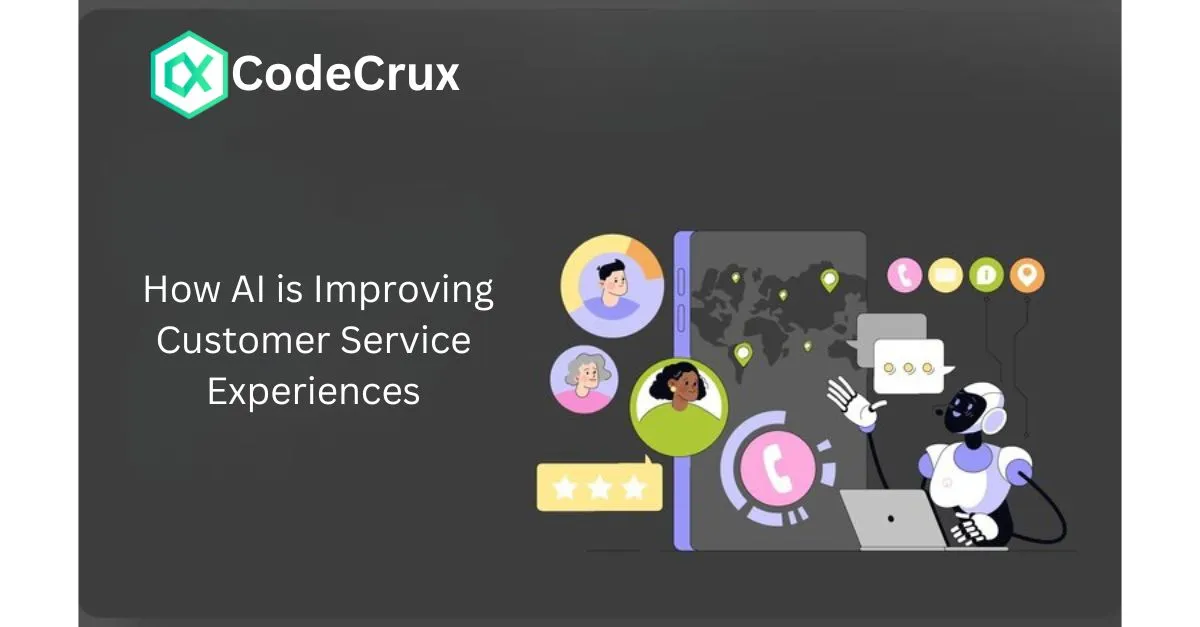How AI is Improving Customer Service Experiences

In today’s fast-paced digital landscape, customer service is no longer just about resolving issues; it’s about creating seamless, personalized, and memorable experiences. Artificial Intelligence (AI) has emerged as a game-changer in achieving these goals, transforming how businesses interact with their customers. Here’s a closer look at how AI is revolutionizing customer service experiences.
1. Enhanced Personalization
AI-driven customer service tools leverage vast amounts of data to offer highly personalized experiences. By analyzing customer behavior, purchase history, and preferences, AI can:
-
Provide tailored recommendations.
-
Anticipate customer needs before they arise.
-
Customize communication based on individual profiles.
For example, e-commerce platforms use AI to suggest products that align with a customer’s interests, creating a sense of connection and improving satisfaction.
2. 24/7 Availability with Chatbots and Virtual Assistants
AI-powered chatbots and virtual assistants ensure that businesses are available to customers around the clock. These tools can:
-
Respond to common queries instantly.
-
Resolve simple issues without human intervention.
-
Escalate complex problems to human agents efficiently.
This level of availability enhances customer trust and reduces wait times, a critical factor in customer satisfaction.
3. Improved Efficiency and Cost Savings
AI automates routine tasks, enabling customer service teams to focus on more complex and value-driven interactions. Key benefits include:
-
Faster resolution times through predictive analytics.
-
Reduced operational costs by minimizing human intervention for repetitive tasks.
-
Streamlined workflows with AI integration into CRM systems.
4. Sentiment Analysis for Better Engagement
AI tools equipped with natural language processing (NLP) can analyze customer emotions and tone during interactions. This capability allows businesses to:
-
Detect dissatisfaction or frustration early.
-
Adapt responses to match the customer’s emotional state.
-
Deliver empathetic and human-like interactions.
Such insights help improve the overall customer experience and build stronger relationships.
5. Proactive Issue Resolution
AI can predict potential issues by analyzing patterns in customer data. This proactive approach enables businesses to:
-
Address problems before they escalate.
-
Notify customers of solutions without them needing to raise a complaint.
-
Enhance customer loyalty through preemptive actions.
For instance, AI can identify a service outage and inform affected customers with updates and compensation offers, turning a negative situation into an opportunity to build trust.
6. Multichannel Support Integration
Modern customers interact with businesses across various channels—email, social media, chat, and phone. AI ensures a unified and consistent experience by:
-
Integrating customer data across platforms.
-
Maintaining context in conversations, regardless of the channel.
-
Providing seamless transitions between AI and human support when needed.
7. Continuous Learning and Adaptation
One of AI’s most powerful features is its ability to learn and improve over time. Through machine learning (ML), AI systems can:
-
Enhance their accuracy in understanding customer queries.
-
Refine recommendations based on new data.
-
Adapt to changing customer expectations and behaviors.
Conclusion
AI is not just a tool for improving efficiency; it’s a strategic asset for delivering superior customer experiences. By leveraging AI, businesses can enhance personalization, ensure 24/7 availability, and build stronger emotional connections with their customers. As AI technologies continue to evolve, the future of customer service promises to be more innovative, responsive, and customer-centric than ever before.